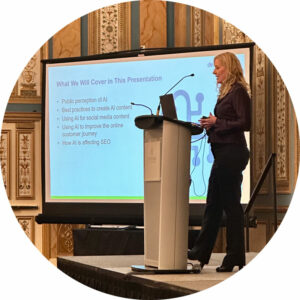Empowering the Care Industry Through Expert Insights
At corecubed, we believe in the power of education to drive positive growth in the care industry.
Throughout the year, we provide a variety of educational opportunities and other home health care marketing tools to help care providers enhance their marketing strategies.
We are dedicated to facilitating learning and development through various channels.
Monthly Blog Articles
Our team consistently publishes insightful and informative blog articles covering a wide range of care advertising and marketing topics. From industry trends to practical tips and strategies, our blog is a valuable resource for care providers seeking to elevate their marketing efforts.
Home Care Marketing Webinars
We participate in free webinars throughout the year, offering in-depth discussions and practical insights on key marketing concepts and strategies relevant to the care industry. These webinars provide an interactive platform for learning and allow participants to engage directly with our team of experts.
Industry Association Engagements
 We actively participate in speaking engagements at care industry associations nationwide. Through in−person presentations, we share our advertising expertise with care providers, offering actionable insights to help them thrive in today’s competitive landscape.
We actively participate in speaking engagements at care industry associations nationwide. Through in−person presentations, we share our advertising expertise with care providers, offering actionable insights to help them thrive in today’s competitive landscape.
Collaborative Partnerships
We actively seek partnerships with other care industry leaders to educate and advocate for the advancement of the sector. By joining forces, we amplify our impact and support the growth and development of care providers nationwide.
Interested in Learning More?
We invite individuals and organizations within the care industry to contact us and learn more about partnering with corecubed.
